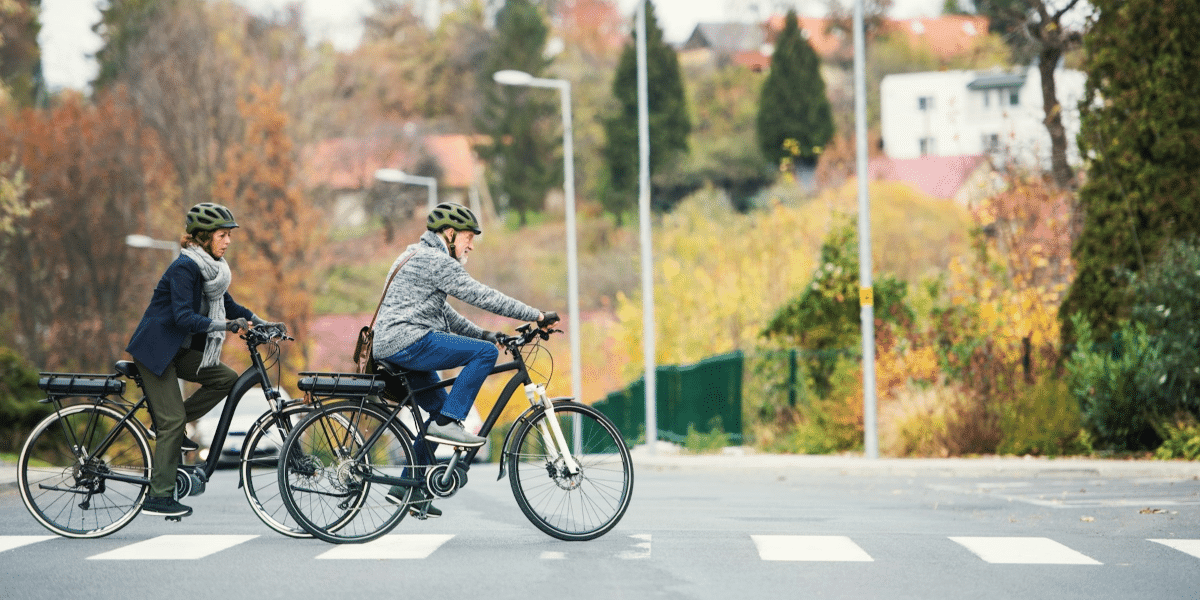Portland, Oregon, has established itself as a leader in urban mobility, embracing innovative solutions to enhance transportation accessibility, sustainability, and efficiency. From smart city initiatives to public transit advancements, Portland’s commitment to urban mobility is evident in its diverse programs and strategies. This article explores the key innovations shaping urban mobility in Portland, highlighting the city’s efforts to create an inclusive and sustainable transportation ecosystem.
Smart City Initiatives
Smart City PDX
Portland’s Smart City PDX program leverages data and technology to tackle urban challenges, with transportation as a central focus. The initiative seeks to improve mobility, reduce carbon emissions, and enhance the quality of life for residents. By using real-time data, the program optimizes traffic flow, enhances public transit efficiency, and supports eco-friendly transportation options.
New Mobility Services
Bike-Share Programs
Portland’s BIKETOWN bike-share system provides residents and visitors with an affordable and sustainable transportation option. The program encourages cycling as a viable mode of urban travel, reducing reliance on cars and lowering carbon emissions. With its integration of e-bikes, BIKETOWN has further expanded its accessibility and appeal.
E-Scooter Sharing
The introduction of e-scooter sharing services in Portland has offered a convenient and eco-friendly alternative for short trips. These services complement existing transit options and have become an integral part of the city’s mobility ecosystem. E-scooters reduce traffic congestion and promote sustainable travel in urban areas.
Car-Share Services
Portland’s embrace of car-sharing platforms, such as ZipCar and car2go, provides flexible vehicle access without the need for ownership. Car-sharing reduces the number of vehicles on the road, contributing to lower traffic congestion and a reduced environmental footprint.
Equity in Mobility
Transportation Wallet
The Transportation Wallet program is a standout example of Portland’s commitment to equitable mobility. By providing residents with credits and passes for various transportation modes, including transit, bike-share, and e-scooters, the program ensures that mobility innovations are accessible to all. This initiative particularly benefits low-income communities and helps reduce transportation barriers.
New Mobility for All
Portland is working to bring emerging transportation options to underserved communities. The New Mobility for All initiative focuses on ensuring that low-income individuals, immigrants, seniors, and people with disabilities can benefit from urban mobility innovations. By prioritizing inclusivity, Portland sets a standard for equitable transportation planning.
Accessibility Enhancements
Wayfinding Technology for the Visually Impaired
Research at Portland State University has led to the development of indoor and outdoor wayfinding technologies for visually impaired individuals. These tools enable greater independence and mobility for those with vision impairments, enhancing their ability to navigate urban spaces and access public transportation.
Public Transit Innovations
Frequent Express (FX) Bus Service
Portland’s Frequent Express (FX) bus service integrates elements of bus rapid transit (BRT) design to provide faster and more reliable bus service along key corridors. Features like dedicated lanes and transit signal priority reduce travel times and improve the overall efficiency of the bus network.
MAX Light Rail Enhancements
The MAX Light Rail system is a cornerstone of Portland’s public transit infrastructure. Ongoing expansions and improvements enhance connectivity across the metropolitan area, reducing reliance on cars and promoting sustainable urban travel. The system’s integration with other transportation modes, such as bike-share and e-scooters, further strengthens its role in Portland’s mobility network.
Research and Education
Transportation Research and Education Center (TREC)
Portland State University’s Transportation Research and Education Center (TREC) serves as a hub for transportation innovation. The center conducts research on topics like bicycle and pedestrian safety, transportation data analysis, and urban mobility solutions. TREC’s work informs policy decisions and supports the city’s efforts to advance transportation sustainability.
Mobility Matters Summit
The annual Mobility Matters Summit, hosted by Portland State University, brings together experts, community members, and policymakers to discuss the intersection of design, disability, and urban mobility. This forum fosters collaboration and innovation, driving inclusive transportation solutions that benefit all residents.
The Role of Technology in Urban Mobility
Data-Driven Decision Making
Portland’s reliance on data analytics has been instrumental in shaping its urban mobility strategies. Real-time data collected from sensors and transportation networks enables the city to optimize traffic flow, reduce congestion, and improve transit reliability.
Integration of Smart Technologies
Smart technologies, including IoT devices and AI-driven systems, are embedded in Portland’s transportation infrastructure. These innovations enhance the efficiency and sustainability of urban mobility systems, from smart traffic lights to predictive maintenance for public transit.
Challenges and Opportunities
Balancing Innovation with Sustainability
While urban mobility innovations bring numerous benefits, balancing growth with environmental sustainability remains a challenge. Portland’s focus on promoting non-motorized transport options, such as cycling and walking, demonstrates its commitment to reducing carbon emissions.
Expanding Accessibility
Ensuring that all residents, regardless of income or ability, can access new mobility services is critical. Programs like the Transportation Wallet and New Mobility for All highlight Portland’s dedication to equitable transportation planning, but continued efforts are needed to address remaining gaps.
Scaling Successful Models
Portland’s innovative mobility solutions serve as models for other cities. By sharing best practices and collaborating with global urban mobility initiatives, Portland can help scale its successful programs to benefit urban centers worldwide.
Portland’s approach to urban mobility exemplifies how innovation, inclusivity, and sustainability can transform transportation systems. From pioneering programs like BIKETOWN and e-scooter sharing to advancements in public transit and accessibility technologies, the city’s commitment to enhancing mobility is both comprehensive and forward-thinking.
As Portland continues to evolve as a leader in urban mobility, its strategies provide valuable insights for cities seeking to address the challenges of modern transportation. By prioritizing equity, leveraging technology, and fostering collaboration, Portland demonstrates how urban mobility innovations can create more connected, sustainable, and inclusive communities.








